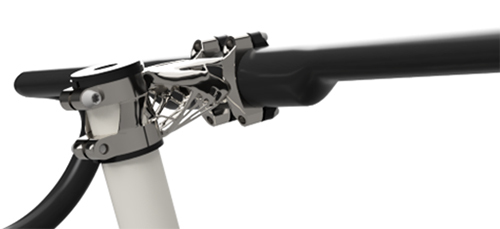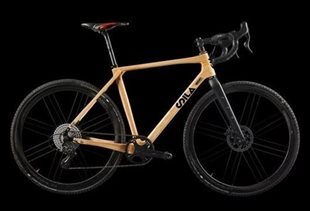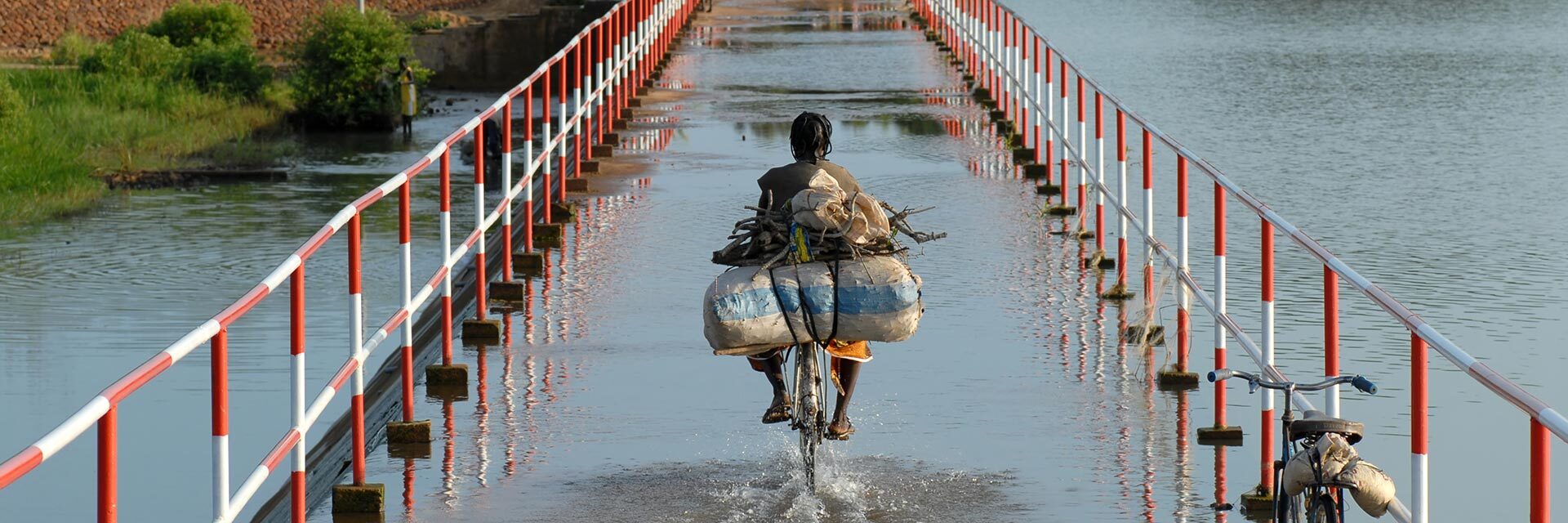Projects
Coming in 2023
- Finite element analysis of a bicycle frame made from biosourced material (ash wood from Québec) from an ecodesign perspective.
In partnership with Sila Cycles - Expected impacts of the metaverse from the perspective of sustainable development.
- Development of a collaborative project with Cyclo Nord-Sud, an NGO that recycles bicycles for vulnerable communities with the goal of making this low-tech means of transportation accessible and using it as a development assistance tool.
Ongoing projects
Co-direction of a master's project in mechanical engineering
Student: Magaux Laigle
Collaboration with professor Daniel Rousse
Co-supervision of a special projet and an end-of-study project in mechanical engineering
Students: Simon-Pierre Fortin, William Léonard et Étienne Tardif
Collaboration with professors Eric Wagnac et Marlène Sanjosé
In partnership with Sila Cycles
Generative design is a modelling approach that allows for the generation of solutions based on mechanical constraints or manufacturing processes. Starting with specifications defined by designers (applied forces, materials, manufacturing methods, mass, etc.), a specialized software generates a large number of propositions that meet the constraints and that are not likely to have been conceived by the designers on their own. Generative design meets the biomimetic design approach in the sense that it is an evolutionary process accompanied by selection – two Darwinist elements that are seen in the world of living organisms. The generative design approach is employed with a view to reducing the quantity of material used, mass and environmental impacts.

Knowing the environmental footprint of our daily activities, such as those associated with Internet use, will undoubtedly help us to make better decisions for improved sustainability. What are the environmental impacts of our current context, where telework and remote education are prevalent? We use transportation less frequently, but does this reduce global impacts? The LIDD is working to develop a portrait of the environmental impact of Internet use within the Québec context and compare it with other sources of emissions, such as transportation, housing and food production.
The pandemic has created a new environmental menace, thanks in large part to the proliferation of single-use procedural masks to slow the spread of COVID-19 in schools. In fact, secondary school students and staff use an average of two procedural masks per day. In light of this, it is estimated that a total of 4.7 million masks are provided to high schools in Québec each week. To date, schools have not received any specific instructions for managing these masks after use. However, RECYC-QUÉBEC and the Centres de services scolaires (CSS – school service centres) have strongly recommended that schools recover them. Within the context of its project entitled “Le Pacte de l’école québécoise : accompagner et soutenir la transition écologique à l’école secondaire” (The Québec school pact: Accompaniment and support for ecological transition at the high school level), an NPO called Lab22 has provided support for approximately 70 schools throughout Québec over a period of three years. The project objective is to promote and incite a movement to create ecoresponsible schools in Québec. In addition to the CSS and RECYC-QUÉBEC, a number of schools have contacted Lab22 for clarification concerning which end-of-life management method for procedural masks has the least detrimental impact on the environment. The mandate granted to LIDD within the context of this project is to conduct a summary life-cycle analysis of a mask, and more specifically, to assess the various end-of-life management methods.
In partnership with Aqua-Consult
Aqua-Consult is a Montréal company that conducts environmental monitoring in aquatic environments (lakes, rivers, reservoirs) to assess water quality parameters, including temperature, turbidity, dissolved oxygen level and chlorophyll content. Aqua-Consult also specializes in measuring the GHG emissions (methane and carbon dioxide) of aquatic systems, such as bogs and hydropower reservoirs. Aqua-Consult is currently developing a remote-controlled aquatic drone to carry out water quality measurements at an affordable cost. The LIDD’s mandate involves identifying and comparing the available solutions for adding an obstacle detection system to the aquatic drone to optimize its use.
In partnership with Sila Cycles
The mandate granted to LIDD within the context of this project is to conduct a prefeasibility study for the electrification of a Sila Cycles bicycle made from ash wood. More specifically, the mandate involves compiling an inventory of high-performance electric bicycles that may be similar to the bike targeted by Sila Cycles, and to identify at least three to be studied in more depth in terms of which technologies are best adapted to the electrification of this unique type of bicycle.

Completed projects
- Life-cycle analysis of a wooden bicycle frame (2020). In partnership with Picolo Vélo;
- Life-cycle analysis of a Québec-made t-shirt (2020). In partnership with Rond Point Athletics;
- Prefeasibility study for the diesel-wind turbine coupling at the Dumont d'Urville polar research base in Antarctica (2019). In partnership with PG Polar Engineering;
- Preliminary study for the biomimetic design of a protective cap subjected to the polar conditions of Antarctica (2018). In partnership with Jessica Houston (Artist);
- Feasibility study for a moringa-oil press (2018). In partnership with Oxfam-Québec;
- Feasibility study for a ramial chipped wood shredder (2018). In partnership with Oxfam-Québec;
- Development of a pedal-powered recharging system for cell phones (2017). In partnership with Groupe d’Action Francophone pour l’Environnement (GAFE – Francophone environmental action group);
- Feasibility study for a gasifier (2017). In partnership with Oxfam-Québec;
- Preliminary study for and design of a fruit dryer powered by solar energy (2017);
- Study of Fair Trade Campus certification and its application on the ÉTS campus (2016);
- Analysis of the possibility of repurposing obsolete computer equipment on the ÉTS campus (2016).


